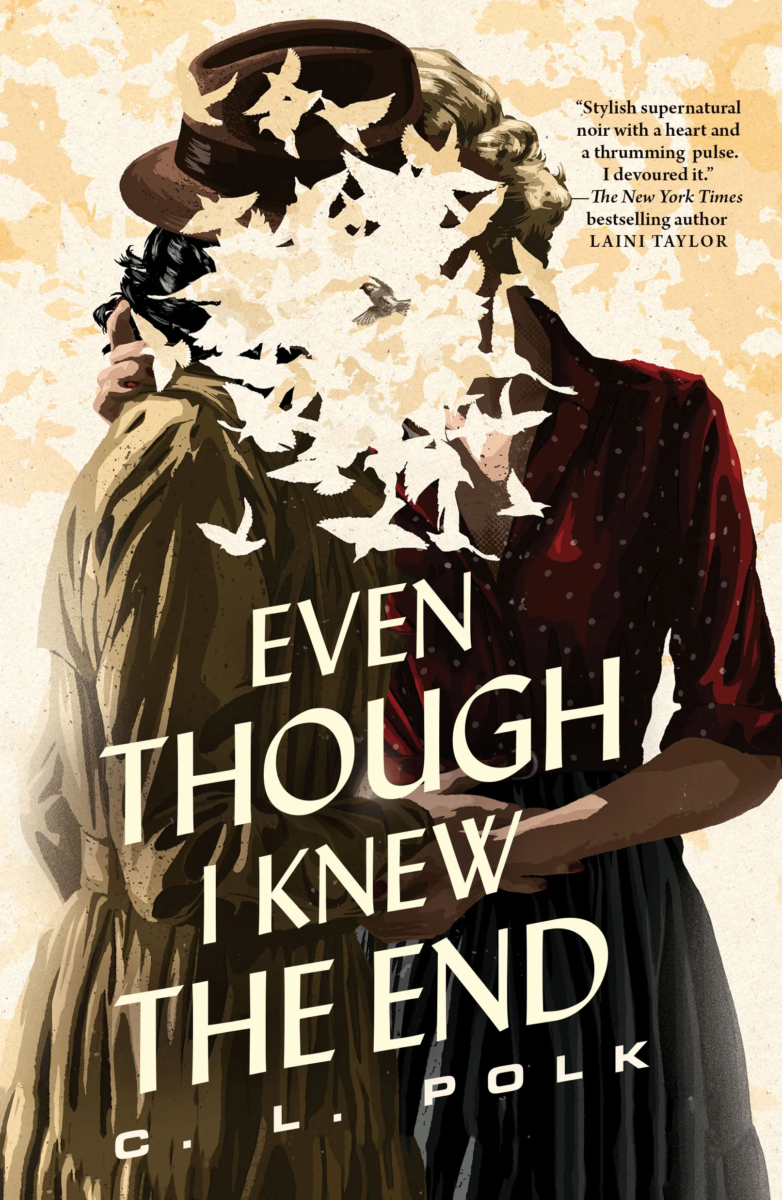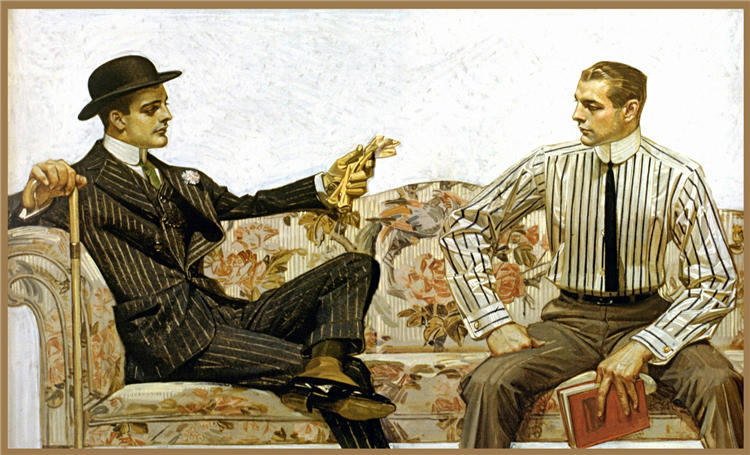Hot damn.
Even Though I Knew The End is just as beautifully, achingly bittersweet and good as I’d anticipated. Better, even. I’d psyched myself up and didn’t finish it before I had to put the book down for two weeks—and I was immediately dragged back in the moment I picked it up again. How often can you say that about a book?
This story is achingly slick period noir investigative drama, with strong sapphic romance. It’s a magical PI story, with a little bit of “The Devil and The Blacksmith” and a lotta bit of Oh Shit. It’s both totally familiar to those who know the genre and beautiful in its own right.

Our narrator Helen is a PI and a magician with a talent for augury. A warlock on the outs with the magical establishment, she’s only days away from having her soul-debt called in by Hell. Hoping to live up the twilight of her time on Earth—and earn a gift for her lover Edith to remember her by—she takes one last case.
“Oh Henry,” you say, “that’s all been done before. Surely this is an ersatz retread?” Trust me, it’s not. Keep reading.
Some books ooze their genre. The narrator’s voice is so distinct and particular that their story couldn’t be any other thing. C.L. Polk nails this here.
Noir has an extremely distinct flavor. As much as I adore a good noir story, the frequent sexism and misogyny and the godawful grinding cynicism often turn me away or leave me depressed. Each of those ingredients has been so tightly woven into noir’s genre-fabric that they’re difficult to separate from the genre itself. But then along comes something like Even Though I Knew the End, and I have to take a step back and stare in awe. C.L. Polk has delivered a story that is undeniably noir. They’ve tied in many of the same trappings I’d expect: distressing or depressing circumstances, grim assessments of the nature of humanity and of those with power, an outgunned protagonist in dire straits staunchly opposed to the great and powerful, and a narrator’s eye that lingers lovingly (and lustfully) on the female form. Yet this feels refreshingly different here. It’s noir, without a doubt. But it’s noir that is deeply aware of the sexism and homophobia its narrator struggles against, and it’s noir that scratches out a little corner of hope and joy in a hostile world full of toxic powers.
It’s incredibly queer. It’s fucking marvelous. I love it.

C.L. Polk has adopted the language of period noir (late 1930s-early 40s) and made it their own. It’s been a long time since I knew so immediately when and where I was after reading a scant few words, and knew the genre to the exact degree. I’m beyond impressed. This is incredible, admirable work. I especially love the way Polk recontextualizes that language; the heavy slang full of so many words for woman (broad, doll, dame, little lady, etc.) feels so immediately different filling Helen’s thoughts, coming from Helen’s mouth and the mouths of her fellow queers, than when men speak those words to her. The same goes for Helen’s effulgent descriptions of women’s beauty, when those words from a different narrator would feel tired and off-putting.
I’m hesitant to draw comparisons to The Dresden Files, to say that this is better or a replacement; saying that implies that genre fiction is some kind of zero-sum game. Thank goodness fiction is not trapped in a mercantilist hellscape. We can add new work to our burgeoning collection without forcing that art to Thunderdome previous art. New art can exist in dialogue with old art, and we can concoct new stories from old ingredients. I can simply say that this art is good. But if you wanted to enjoy noir urban fantasy like The Dresden Files and couldn’t stomach Harry Dresden’s particular brand of sexism, this might be your jam. Likewise, if you wanted more Dresden Files and like books with femme narrators this book will set your heart aflame.

Oh, and a fun side note: Helen appreciates beauty in many places, and at least one of her comparisons is to the Arrow Collar Man. The artist behind the Arrow Collar Man was one J.C. Leyendecker, who lived with his partner and frequent model Charles Beach. I love that Polk includes a reference that is both extremely period-appropriate (the Arrow Collar Man was apparently quite popular) and very gay.
Even Though I Knew The End will be released November 8, 2022. Thanks to Tor for providing us with a review copy!
